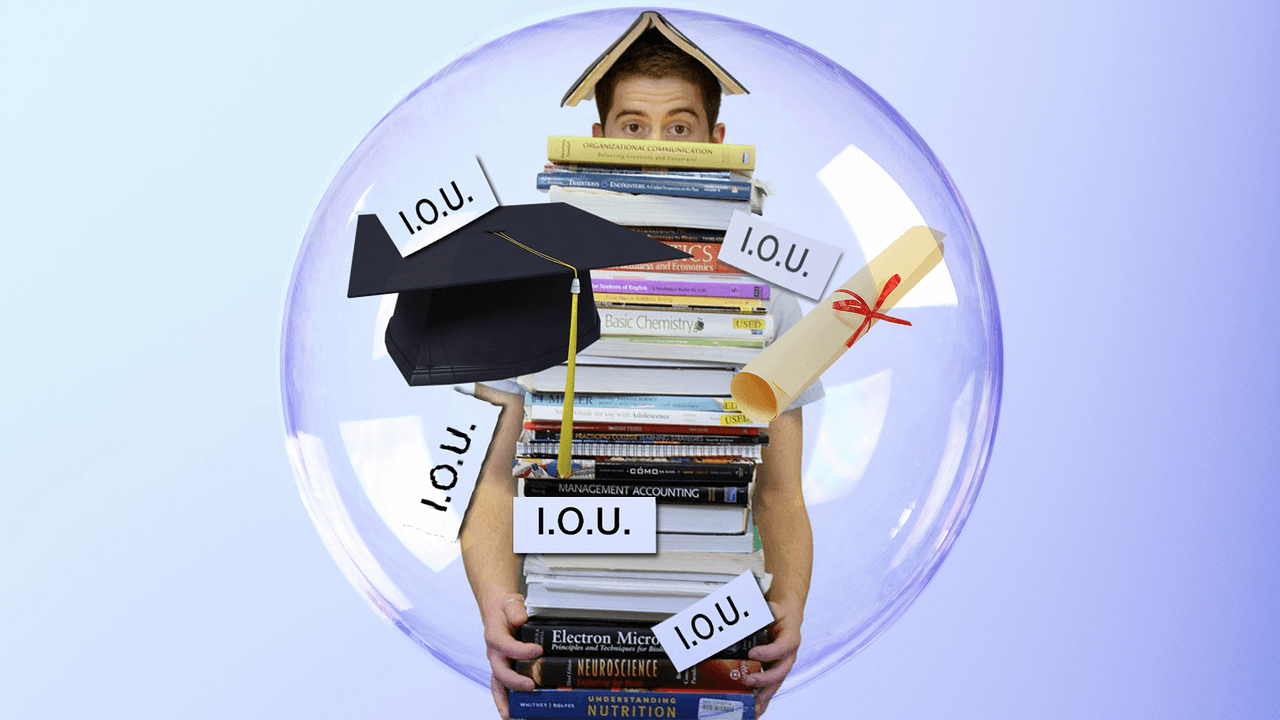Student-centric advice and objective recommendations
Higher education has never been more confusing or expensive. Our goal is to help you navigate the very big decisions related to higher ed with objective information and expert advice. Each piece of content on the site is original, based on extensive research, and reviewed by multiple editors, including a subject matter expert. This ensures that all of our content is up-to-date, useful, accurate, and thorough.
Our reviews and recommendations are based on extensive research, testing, and feedback. We may receive commission from links on our website, but that doesn’t affect our editors’ opinions. Our marketing partners don’t review, approve or endorse our editorial content. It’s accurate to the best of our knowledge when posted. You can find a complete list of our partners here.
What to Do if Student Loans Are Sold to a Collection Agency
 By
Kayla Korzekwinski
By
Kayla Korzekwinski 
Kayla Korzekwinski is a Scholarships360 content writer. She earned her BA from the University of North Carolina at Chapel Hill, where she studied Advertising/PR, Rhetorical Communication, and Anthropology. Kayla has worked on communications for non-profits and student organizations. She loves to write and come up with new ways to express ideas.
Full BioLearn about our editorial policies

Maria Geiger is Director of Content at Scholarships360. She is a former online educational technology instructor and adjunct writing instructor. In addition to education reform, Maria’s interests include viewpoint diversity, blended/flipped learning, digital communication, and integrating media/web tools into the curriculum to better facilitate student engagement. Maria earned both a B.A. and an M.A. in English Literature from Monmouth University, an M. Ed. in Education from Monmouth University, and a Virtual Online Teaching Certificate (VOLT) from the University of Pennsylvania.
Full BioLearn about our editorial policies

When student loans are in default for too long, they may be put in collections. If your student loan is sold to a collection agency, there can be financial consequences. Continue reading to learn more about what to do if your student loans are sold to a collection agency!
What is a collection agency?
A collection agency is an entity that recovers unpaid debt from borrowers who have defaulted on their loans. Collection agencies urge borrowers to pay their overdue debt. They do this using phone calls and letters. When a borrower’s student loan is in collections, the collection agency will contact them. Contact will continue and become more frequent if the borrower does not respond.
When does a loan go to collections
Thankfully for borrowers, student loans don’t just go into default with no warning. Federal student loans go into default after 270 days of missed payment. This time gives you roughly nine months to make a payment, or at least make a plan to try to stop your loans from defaulting.
What happens in collections
When student loans default, they become accelerated, meaning they become due in full immediately. Borrowers will be responsible for all the costs that the lender incurred from the collections process. If your loan is held by the Department of Education, these costs could amount to 20% of your total loan amount. This can increase your total debt drastically. For example, if your loan balance is $30,000, collections costs could add $6,000 to what you owe.
Consequences of going to collections
Wage garnishment
If you do not repay your debt or enter into a repayment agreement, the collection agency will begin wage garnishment. The Department of Education can take up to 15% of disposable pay from your paychecks for the defaulted loan. Disposable pay is what remains of your paycheck after deductions such as taxes. Once wage garnishment starts, it will continue until the debt is repaid or the default is resolved.
Changed access to federal aid
Unfortunately, if you are currently not in good standing with your loans, you’ll likely not be able to receive any other type of financial aid. This means that if you’re planning to go back to school and want to use federal aid, you may need to put your plans on hold.
Negative impact on your credit score
One of the biggest impacts of a loan going to collections is that it can negatively impact your credit score for up to seven years. A negative credit score can mean that you’re ineligible for other loans, which may prevent you from being able to buy a car, a home, or secure a credit card. Any loans you may be eligible for will generally have very high interest rates. A poor credit score can take years to build back up, so make sure that you keep this in mind if your loan goes to collections.
Ineligible for deferment and loss of other benefits
Lastly, when a loan goes to collections, there are a slew of other benefits you may lose as well. You’ll be ineligible to defer your loans, as well as your subsidized loans may lose their benefits. If your loans go to collections, make sure you’re aware of the changes in benefits.
Rights in collections
Collection agencies may use aggressive and frequent tactics to make a borrower pay their debt. The FTC enforces the Fair Debt Collection Practices Act (FDCPA). This act makes it illegal for debt collectors to use abusive, unfair, or deceptive tactics when collecting debts. The FDCPA lays out rights for borrowers who are in collections. It’s important to know these rights so that you can report a collection agency that violates the rules. Some of these rights are:
- Collection agencies cannot contact borrowers before 8am or after 9pm
- Collection agencies cannot contact borrowers’ work if told not to
- Collectors cannot use threatening or obscene language
- Collectors cannot make threats or lie about the debt
How to get out of collections if your student loans are sold to a collection agency
If your student loan debt is in collections, the first thing you should do is respond to the collector. Ignoring them will not make contact stop and can potentially make it more frequent. Respond to the collector by sending a letter. If you’re not sure what to say, the Consumer Finance Protection Bureau provides letter templates for a variety of collections situations. Remember, the collection agency wants you to pay. They may respond with repayment options such as a repayment plan or a lump sum payment.
Another way to stop collection activities is to resolve the default on the student loan(s). Ways you can do this may include:
- Payback and rehabilitation
-
- Repaying your loan in full (This may not always be possible, but if your loan is low enough you should consider this)
- Declaring bankruptcy (This can be a very tedious option, so thoroughly explore this before moving forward)
- Consolidating your loans
See also: Student loan default: how to get out of it
Private loans
The above options for getting out of collections and student loan default are for federal student loans. Private loans do not have these resolution programs. Usually, private loan default can only be resolved through repayment. If you have a private loan in default, contact your lender to set up repayment terms.
Stay out of default
The best way to avoid collections all together is to stay out of default. If you’re falling behind or struggling to make student loan payments, consider changing your repayment plan or applying for deferment. If your loan is in collections, use this advice to get out of it!
Frequently asked questions about what to do if your loans are sold to a collections agency
Can student loans be forgiven if in collections?
How do I settle private student loan collections?
How long can debt collectors try to collect on student loans?





